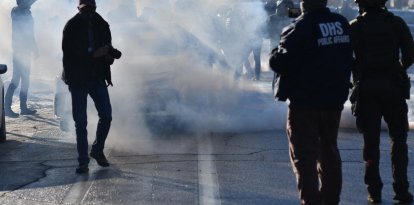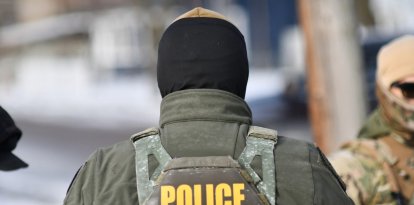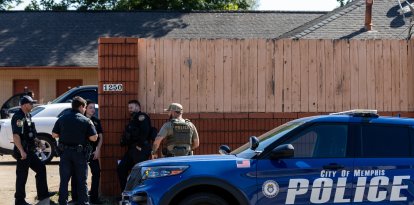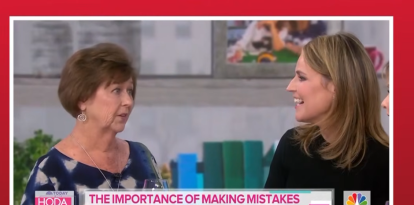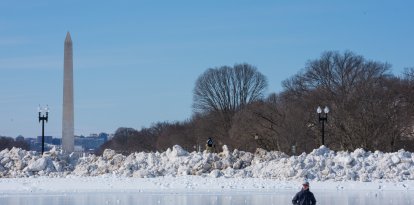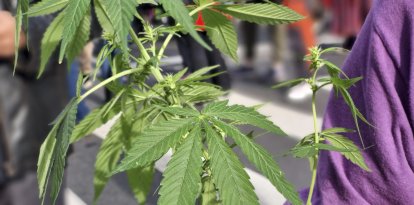Starbucks Syndrome: Democratic Cities Can't Control Crime
The coffee shop chain is forced to close 16 stores, all in Democratic cities, due to drug and crime-related incidents.

Starbucks. Foto: Christina (Flick)
The Starbucks coffee shop chain is closing 16 stores in several cities in the United States, according to the Wall Street Journal. The reasons are not economic; the closures are due to drug use and other incidents inside the stores, which have been reported by the chain's employees. Six of the locations are being closed in the Los Angeles area, another six in Seattle, two in Portland, one in Philadelphia and one more in Washington.
Last Monday, chief operating officers Debbie Stroud and Denise Nelson wrote a message to several Starbucks employees in which they acknowledged the following, "We read every incident report you file—it’s a lot". The company has been having problems because several of the employees were refusing to work under these conditions.
It so happens that all 16 locations are in Democratic cities. Since 2000, crime rates have skyrocketed and most of the major cities are in Democratic Party hands. This rise in crime has coincided with the "defund the police" campaign, which has emerged in the context of the Black lives matter movement.
It is what we could call the Starbucks syndrome: mayors are unable to control crime or they favor it with their progressive policies. And businesses struggle to keep up or are forced to close.
Defunding the police
Democratic mayors have been ambivalent about the movement to defund the police in various cities. On the one hand, many want to join the movement but, on the other hand, reducing police funding has a direct effect on crime.
There have been four in the city of Los Angeles, plus one each in Santa Monica and West Hollywood. Eric Garcetti has been the mayor of Los Angeles for almost a decade (since 2013), and there is troubling data as far as crime is concerned. For example, the incidence of homicides is the highest in fifteen years. In the first six months of the year there have been 181 homicides, compared to 180 last year or 153 ten years ago.
Following the death of George Floyd and the organized protests in the streets, Mayor Garcetti announced a $150 million cut in the Police budget. The budget was 1.7 billion at the time, so the cut was not very large. But while the budget is shrinking, crime is not. In fact, what happened in 2020 is a change of trend: until then crime was going down and since then it has not stopped going up.
Something similar is happening in West Hollywood, another of the towns where Starbucks is forced to close. The mayor has been forced to reject a proposal to reduce the budget for the sheriff's office.
Santa Monica Mayor Sue Himmerlich made no mention of crime in her policy proposal for the city. But her city has a real problem: while the crime rate continues to fall for the country as a whole, it is rising in Santa Monica. In fact, it is considered one of the most unsafe cities in California.
Seattle: Ceding part of the city to crime
Seattle, the capital of Washington state, is home to four Starbucks coffee shops that will close before the end of the month. Its mayor, Democrat Bruce Harrell, has declared, "We will not tolerate crime" in the city. Harrell regrets the serious incidence of crime in Seattle, although he recognizes that it is a situation he has inherited: he has been mayor since the first day of 2022.
His predecessor is the Democrat Jenny Durkan. After the death of George Floyd, during his term in office, an area was created where the law ceased to apply: CHOP, acronym for Capitol Hill Organized Protest. Since then, crime has risen sharply in the city.
The number of crimes in June 2020 was 2,810, after falling consistently in the previous months. Since then, crime has not stopped rising, and the latest data, which is from May 2022, lists 4,026 crimes. The mention of June 2020 is not whimsical: that is when those who led the protests took control of an area of the city.
The last of the Starbucks locations to close is in the capital. The mayor, Muriel Bowser, has not been swayed by the campaign to withdraw funding to the police. Nonetheless, violence and crime are increasingly prevalent on the streets of Washington, D.C. Ten years ago, in 2012, there were 88 murders. Last year there were 226. In 2021, the number of murders grew by 14%. So far in 2022, the growth rate remains the same: 14%.














